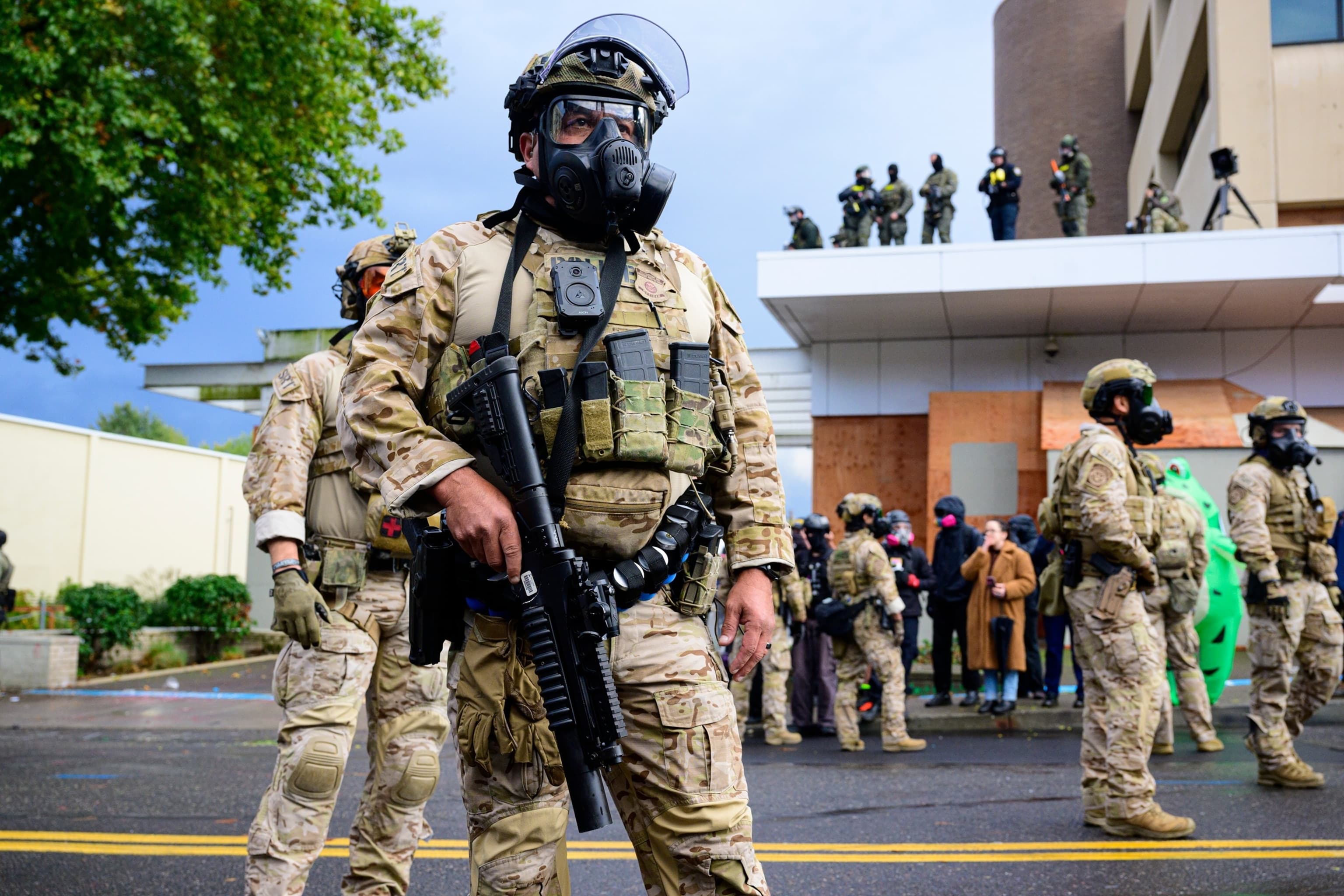Appeals Court's 2-1 Ruling Allows Trump to Deploy National Guard in Portland

A divided U.S. appeals court ruled on Monday that President Donald Trump can send National Guard troops into Portland, Oregon, despite objections from state and city leaders. The decision by a three-judge panel of the 9th U.S. Circuit Court of Appeals granted the Justice Department's request to temporarily halt a lower court's order, marking a significant legal victory for the President as he deploys military forces to several Democratic-led locales. The ruling allows the deployment of approximately 200 Oregon National Guard members.
The 2-1 decision saw two judges appointed by President Trump, Circuit Judge Bridget Bade and Circuit Judge Ryan Nelson, form the majority. They concluded that President Trump "lawfully exercised his statutory authority" when federalizing the state's National Guard. Judge Nelson also added a concurring opinion, asserting that courts lack the ability to review the president's decision to deploy troops.
The ruling overturns an earlier decision by Portland-based U.S. District Judge Karin Immergut, a Trump appointee, who had blocked the deployment. Judge Immergut had previously stated that Trump likely acted unlawfully and found no evidence that recent protests in Portland warranted such a deployment, describing the President's characterization of the city as "war-ravaged" as "simply untethered to the facts."
Oregon Attorney General Dan Rayfield strongly criticized the appellate court's decision. "Today's ruling, if allowed to stand, would give the president unilateral power to put Oregon soldiers on our streets with almost no justification," Rayfield stated, adding, "We are on a dangerous path in America." Governor Tina Kotek also expressed deep concern and called for the full Ninth Circuit Court of Appeals to reconsider the panel's decision.
President Trump's administration has maintained that the deployments are necessary to protect federal assets and personnel from protesters, citing damage to federal buildings and threats to U.S. Immigration and Customs Enforcement (ICE) officers. The administration has relied on Section 12406 of Title 10 of the U.S. Code, which permits a president to deploy state National Guard to repel an invasion, suppress a rebellion, or execute federal law.
Despite this appellate victory, the immediate practical impact remains complex. A second temporary restraining order issued by Judge Immergut, which prohibits the deployment of any federalized National Guard troops from any state to Oregon, reportedly remains in effect. Oregon officials are expected to seek an "en banc" rehearing by a larger panel of the appeals court to challenge the 2-1 decision.
Circuit Judge Susan Graber, a Bill Clinton appointee, issued a scathing dissent, calling the majority's ruling "not merely absurd" but dangerous. She argued that the decision "erodes core constitutional principles, including sovereign States’ control over their States’ militias and the people’s First Amendment rights to assemble and to object to the government’s policies and actions."